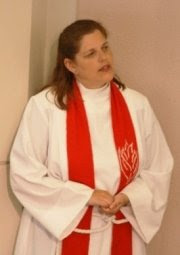In January and February in the St. Paul's Bible Challenge we will be looking at a collection of books in the Old Testament called the writings. Actually we will be looking at some of the books called the writings. The Writings (which are the third section of the Old Testament: The Law and The Prophets being the other two sections) are made up of Ruth, Esther, Job, Ezekiel, Daniel, Psalms, Proverbs & the Song of Solomon. In this section of the Bible Challenge we are looking at Ruth, Esther, Job, Ezekiel & Daniel.
What all of these books have in common is that they tell stories that are meant to illustrate the nature of God, God's relationship with his people and how God wishes for those who follow him to behave.
The book of Ruth tells the story of the great grandmother of King David and of how she came to be a part of the history of Israel. The book was written at the same time as the books Ezra and Nehemiah. This is after the Babylonian captivity of the nation of Israel and the major debate in Israel at that time was whether non-Jews who were faithful to the God of Israel had a place in the nation. A story that identified the great grandmother of King David, the greatest king in the history of Israel, as a Moabite, not only a foreigner but an enemy, clearly puts God on the side of inclusion.
The book of Esther actually exists in two versions, a shorter version in Hebrew and a long version in Greek. The shorter version is found in the Old Testament, the extension is found in the apocrypha, under the title "The Rest of the Book of Esther". The book of Esther tells the story of a Jewish woman who becomes Queen of Persia and prevents the massacre of her people. The extensions attempt to make God, rather than Esther herself, the principle actor in the story.
The book of Job tells the story of a man named Job, who God points to as a just and honorable man in a conversation with Satan. God then gives Satan permission to test Job, and in the course of trials and conversations with some of his friends and then with God, Job's faith is exposed and challenged, and ultimately made stronger.
The book of Ezekiel is sometimes classed as prophecy, but it is as much poetry and history as it is prophetic oracles. Ezekiel is almost exactly divided in half. The first half of Ezekiel is oracles of judgement against the people of Israel. The second half are words of support and hope in various forms. Ezekiel is one of the newest books in the Old Testament and shows the movement to a development of an understanding of Scripture that makes the Torah the center piece.
The book of Daniel is an example of apocalyptic literature. The stories are set during the Babylonian captivity, but the book was actually written about 150 years BC, rather than in the mid 500's BC when the Babylonian captivity happened or in the century immediately following. The stories about Daniel (which means God is my judge or God has judged) are meant to encourage and strengthen the faith of the people.
Subscribe to:
Post Comments (Atom)

No comments:
Post a Comment